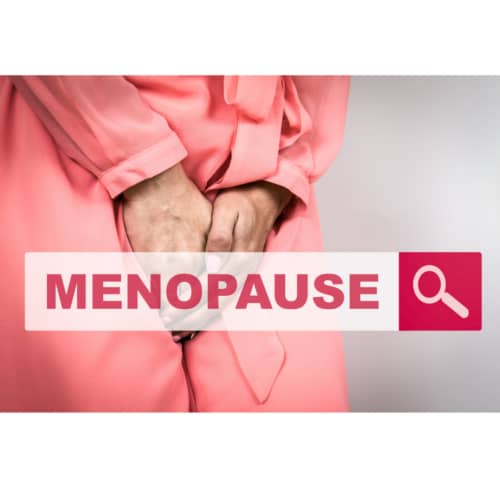What are the 34 Symptoms of Menopause
What the most common signs of menopause that affect women? Here is a list of the 34 symptoms of menopause:
Allergies
Anxiety
Bloating
Body Odour
Breast Pain
Brittle Nails
Burning Tongue
Depression
Difficulty Concentrating
Digestive Issues
Dizziness
Electric Shocks
Fatigue
Gum Issues
Hair Loss
Headaches
Hot Flushes
Incontinence
Irregular Heartbeat
Irregular Periods
Irritability
Itchy Skin
Joint Pain
Lack of Libido
Memory Loss
Mood Swings
Muscle Tension
Night Sweats
Osteoporosis
Panic Attacks
Sleep Issues
Tingling in fingers & toes
Vaginal Dryness
Weight Gain
Menopause symptoms
Upto 90% of women experience menopause gain weight
85% of women experience hot flushes
3 out of 4 experience night sweats
80% suffer from menopause tiredness & fatigue
75% of women have changes in their mood
Around 40% experiencing loss of libido.
With these stats, know that you’re not alone.

How long does menopause last
On average a woman will typically begin to experience menopause symptoms around her mid-40s. These symptoms of fluctuating and declining hormones are known as perimenopause symptoms. From the start of these hormone changes it can be months or years before a woman has her last period.
For most women, by the time they have reached menopause their symptoms have started to ease.
When it comes to how long symptoms can typically last there is a wide bracket. Anywhere between 2-10 years.
With the average menopause symptoms lasting 4 years
Because of these fluctuating hormones this is when many women will experience their most intense symptoms. Intense symptoms such as hot flushes, irregular periods and night sweats.
What is the average age of menopause
Menopause is when a woman has had no periods for 12 consecutive months. The average age of menopause being 51. After this, many women’s symptoms will start to ease and resolve.
Early Menopause
Women can experience early menopause too. An early menopause may be more common that you realise as 1 in 100 women experience menopause before the age of 40. This is known as premature menopause or premature ovarian insufficiency.
Post-menopause symptoms
Post menopause women are at higher risk of osteoporosis (weak bones) and heart disease. This is why it’s always advisable to discuss your symptoms with your GP.

Get your levels checked by your GP
If you can relate to any of these symptoms and your symptoms are affecting the quality of your life in any way, which they no doubt are if you’re reading this, then please do seek medical advice. Request to get your hormone levels tested (for free) along with your bloods to check for any nutrient deficiencies that could also be affecting how you are feeling.
In addition there are dietary and lifestyle changes you can make to help balance both your hormones and help you manage your symptoms.
The decision whether H.R.T. is suitable for you is very much an individual decision based on your individual circumstances and medical history. It’s something you should discuss directly with your doctor and no-one else.

Shop Pretty Pea hormone balancing range of supplements.
RELATED ARTICLES
Read the 10 things every woman at 30 should know about her body at 40 (and beyond)
See why weight loss after 40 is so much harder
DISCLAIMER The information provided on prettypea.blog is for education purposes only. The information provided is based on my own experience as well as my own interpretations of current research available at the time. This page does not provide medical advice; it is intended for informational purposes only. It is not a substitute for professional medical advice, diagnosis or treatment. Never ignore obtaining or following professional medical advice in seeking treatment because of something you have read on the internet. Always seek professional medical advice.


Trackbacks/Pingbacks